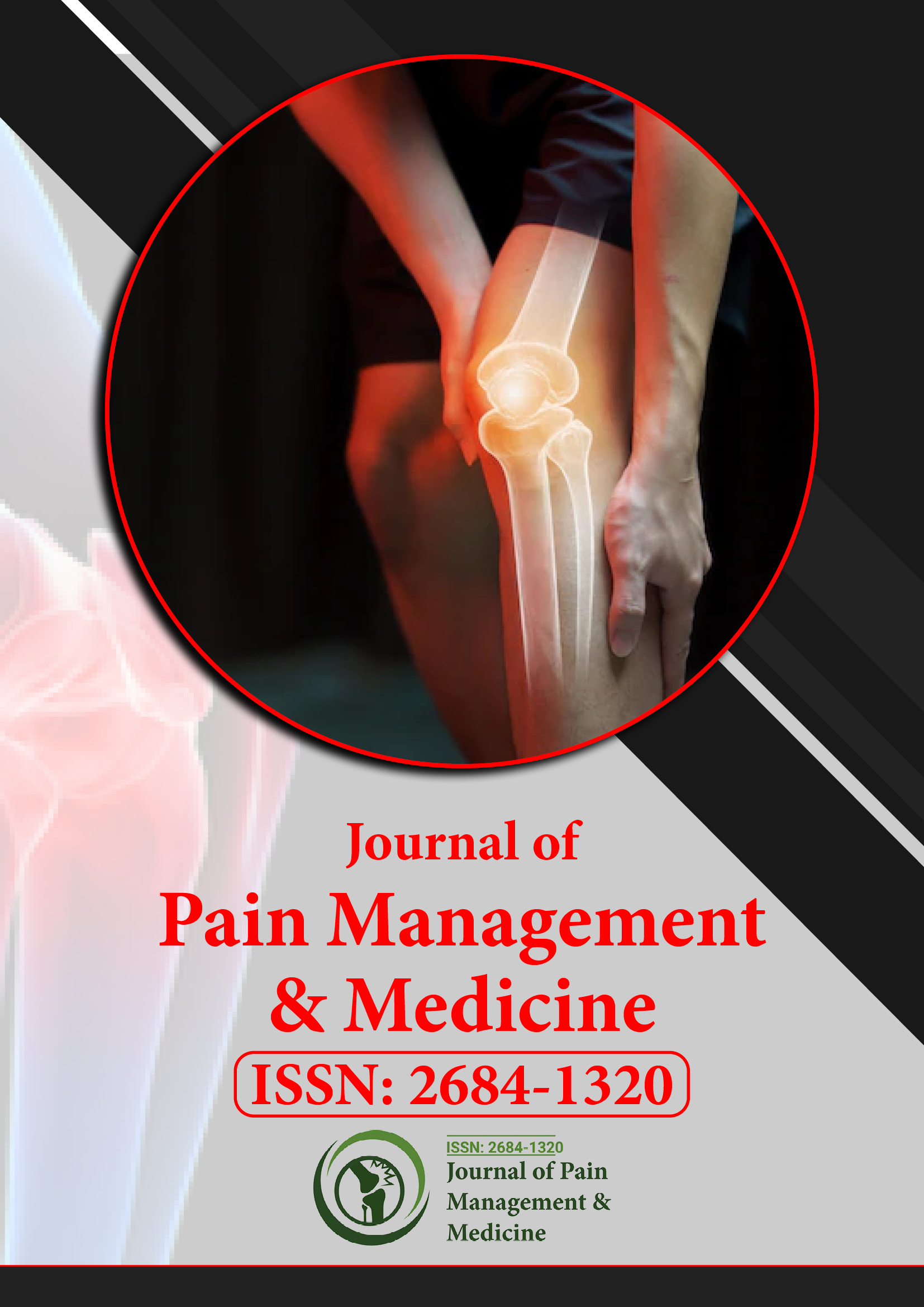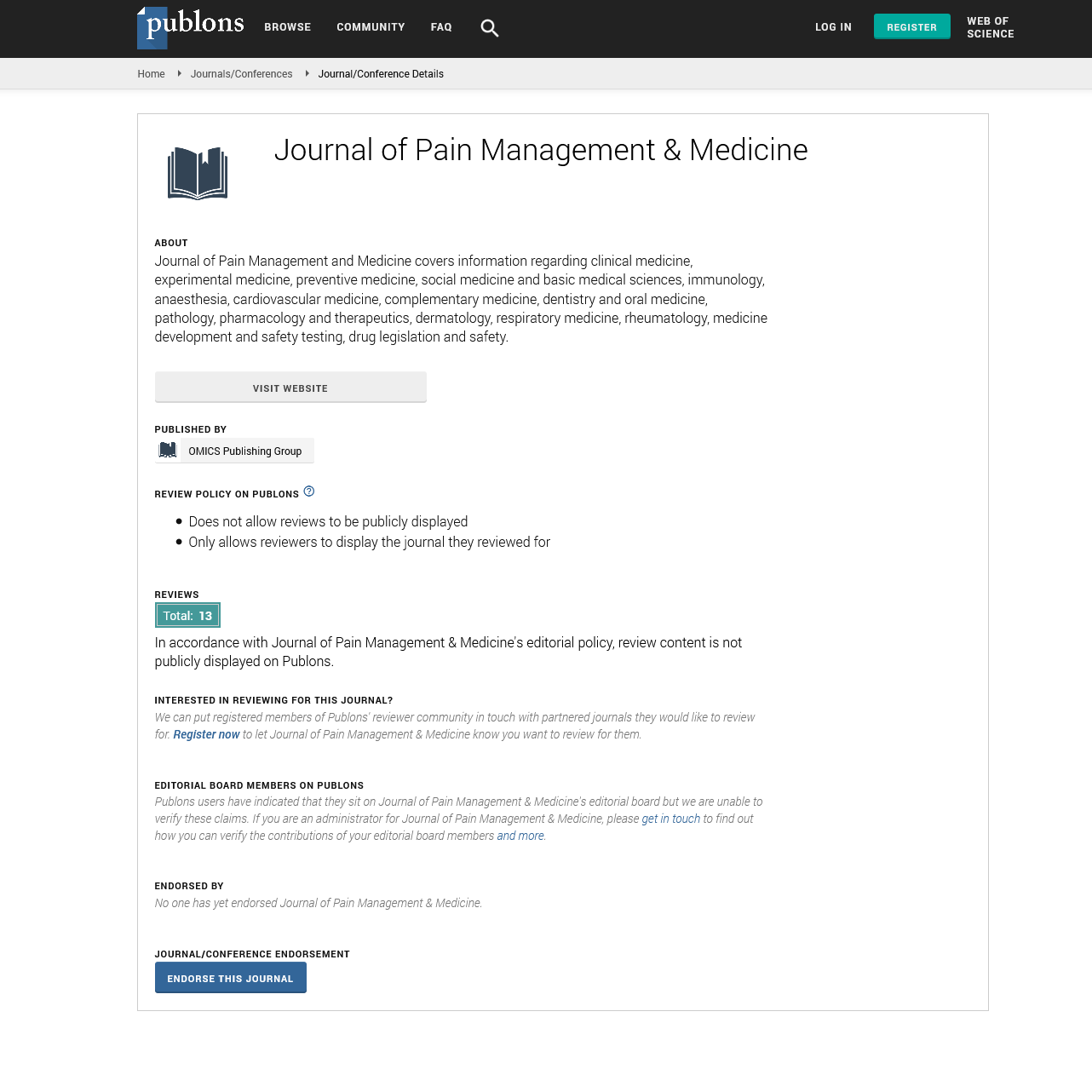Indexed In
- RefSeek
- Hamdard University
- EBSCO A-Z
- Publons
- Euro Pub
- Google Scholar
- Quality Open Access Market
Useful Links
Share This Page
Journal Flyer

Open Access Journals
- Agri and Aquaculture
- Biochemistry
- Bioinformatics & Systems Biology
- Business & Management
- Chemistry
- Clinical Sciences
- Engineering
- Food & Nutrition
- General Science
- Genetics & Molecular Biology
- Immunology & Microbiology
- Medical Sciences
- Neuroscience & Psychology
- Nursing & Health Care
- Pharmaceutical Sciences
Perspective - (2023) Volume 9, Issue 1
Benefits and Importance of Rehabilitation Medicine
Bosques Houtrow*Received: 10-Jan-2023, Manuscript No. JPMME-23-20820; Editor assigned: 13-Jan-2023, Pre QC No. JPMME-23-20820 (PQ); Reviewed: 27-Jan-2023, QC No. JPMME-23-20820; Revised: 03-Feb-2023, Manuscript No. JPMME-23-20820 (R); Published: 13-Feb-2023, DOI: 10.35248/2684-1320.23.9.195
Description
Rehabilitation medicine is a branch of medicine that focuses on improving the physical, mental, and functional abilities of individuals who have been affected by illness, an injury, or a mental impairment. This type of medicine is essential in assisting patients in obtaining their independence and improving their quality of life. It aims to help patients recover from the physical and psychological effects of illness, injury, or disability, and to prevent further complications.
Importance of rehabilitation medicine
Rehabilitation medicine is essential in maintain the physical abilities of patients who have suffered from injuries or illnesses. It is also important in managing chronic conditions that affect patient’s mobility, such as stroke, Parkinson's disease, and multiple sclerosis. It helps patients to obtaining strength, mobility, and function, which can improve their quality of life and reduce the need for hospitalization and long-term treatment.
Rehabilitation medicine is also important in managing pain, reducing the risk of future injury, and preventing the development of secondary complications. For example, after a stroke, patients may need rehabilitation to obtain their ability to speak, walk, and perform daily activities independently. It can help to prevent the development of contractures, pressure sores, and other complications that can occur when patients are associated for a long period of time.
Benefits of rehabilitation medicine
Rehabilitation medicine provides a variety of benefits to patients who have suffered from injuries or illnesses. These benefits include:
Improved mobility and independence: It can help patients to obtain their strength and mobility, providing them to perform daily activities independently. This can improve their quality of life and reduce the importance of patient assistance.
Pain management: Rehabilitation medicine can help to manage pain and reduce the need for pain medication. This can help to improve patient’s flexibility and reduce the probability of pain medication addictive behavior.
Reduced risk of future injury: It can help to improve patient’s stability, strength, and decision-making, and reducing the risk of future falls and injuries.
Improved mental health: Rehabilitation medicine can help to improve patient’s mental health by reducing the stress and anxiety associated with illness or injury.
Cost-effective: Rehabilitation medicine can be a cost-effective way to manage chronic conditions and reduce the need for hospitalization and long-term treatment.
Types of rehabilitation medicine
Rehabilitation medicine includes a wide range of treatments that are developed to the individual needs of patients. These therapies include:
Physical therapy: It is a type of rehabilitation medicine that focuses on improving patients' mobility and function. Physical therapists use exercises and other techniques to help patients obtain their strength, flexibility, and co-ordination.
Occupational therapy: It is a type of rehabilitation medicine that focuses on assisting patients to perform daily activities independently. Occupational therapists use activities and exercises to help patients improve their ability to perform activities such as maintaining a healthy diet, and personal treatment.
Speech therapy: It is a type of rehabilitation medicine that focuses on helping patients improve their ability to communicate. Speech therapists use exercises and other techniques to help patients obtain their ability to speak, and understand language.
Cognitive therapy: It is a type of rehabilitation medicine that focuses on helping patients to improve their cognitive abilities, such as memory, attention, and problem-solving.
Rehabilitation medicine is essential in helping patients in recovering from injuries, chronic conditions, and developmental disorders. It is an important factor of healthcare that can help individuals to improve their quality of life, and reduce the risk of medical complications, and prevent the requirement of longterm treatment. It has number of advantages, and people receiving these treatment methods can improve their mobility, independence, and psychological health. Patients can obtain their abilities and perform their daily activities with the help of rehabilitation medicine.
Citation: Houtrow B (2023) Benefits and Importance of Rehabilitation Medicine. J Pain Manage Med.9:195.
Copyright: © 2023 Houtrow B. This is an open access article distributed under the terms of the Creative Commons Attribution License, which permits unrestricted use, distribution, and reproduction in any medium, provided the original author and source are credited.

